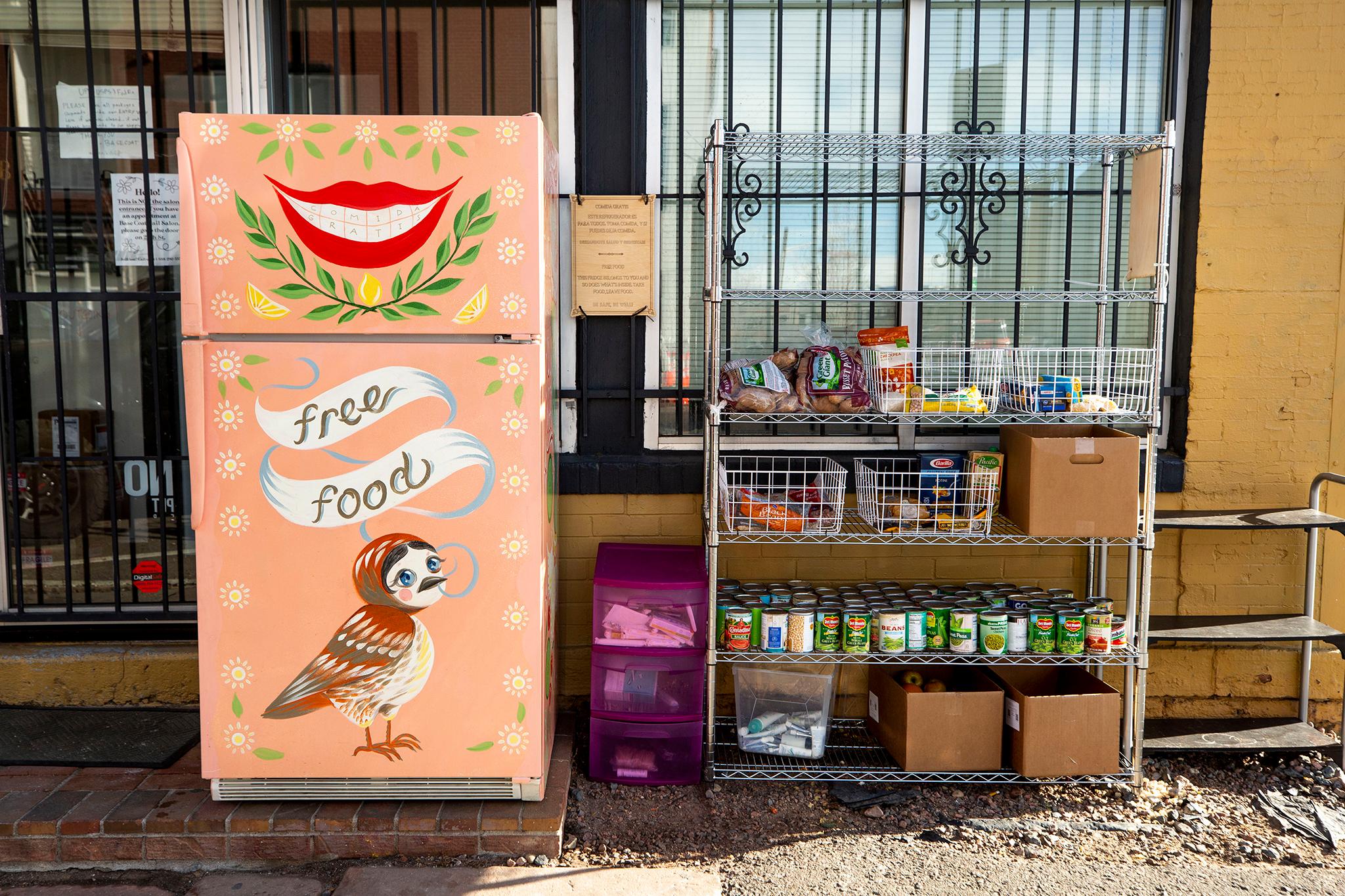When Michael John first ran across a refrigerator outside a Five Points nail salon, he couldn't believe the fruits, vegetables, homemade soups and other items inside were his for the taking.
When he realized the food was indeed free, John told friends. He's been coming periodically over the last month to take food when he needs it and, on occasion, leave food for others.
"Things are hard for everybody," John said Monday at the Denver Community Fridge hosted by Base Coat nail salon at 27th and Walnut streets.
The Base Coat pantry, which has in addition to the fridge a shelf of less perishable items and a plastic drawer unit stuffed with toiletries, is part of a project that graduate student Eli Zain started as part of their work with the University of Colorado Denver's Women and Gender Center. Other sidewalk pantries outside Zain's network have been started by churches and individuals.
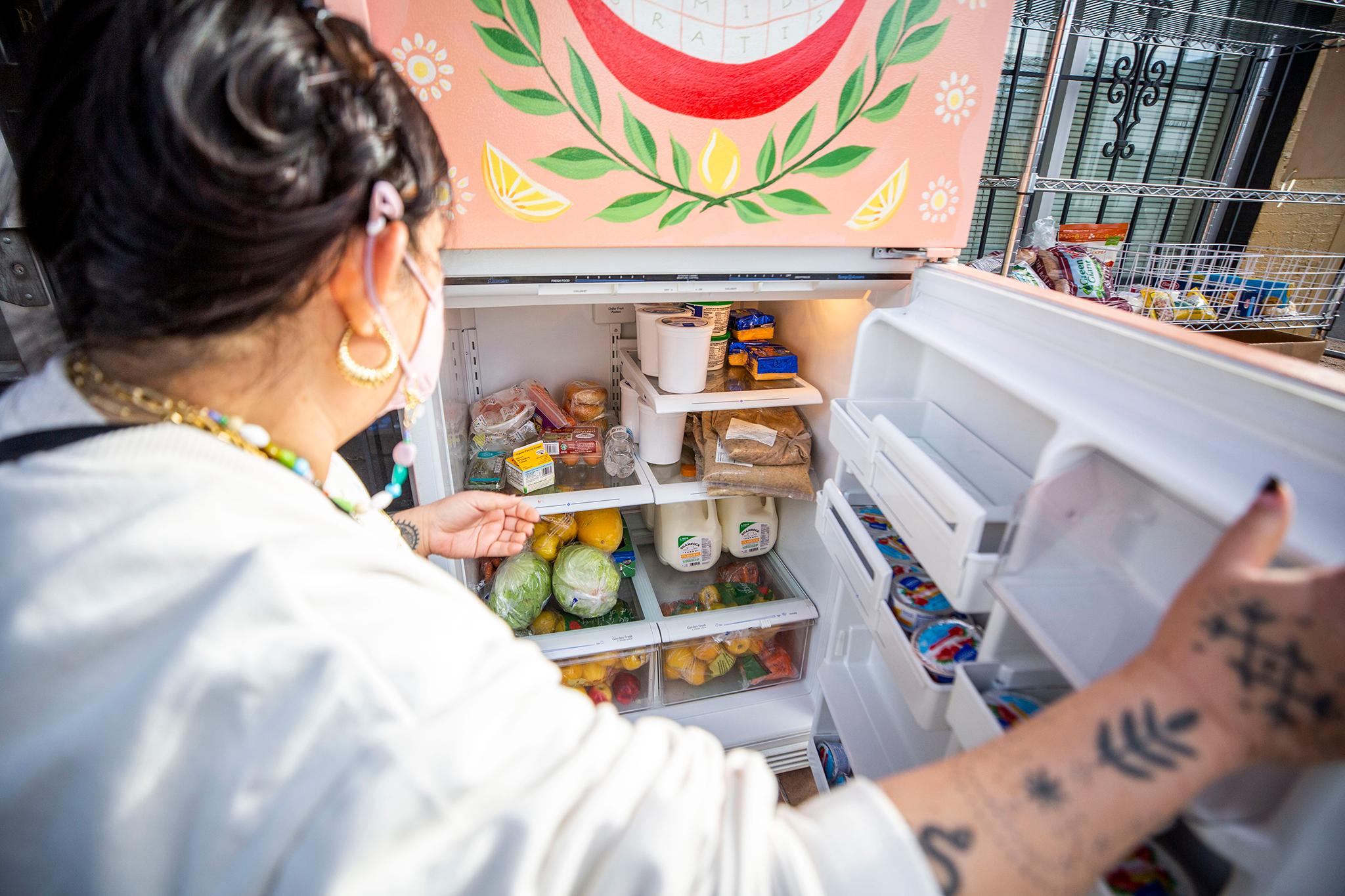
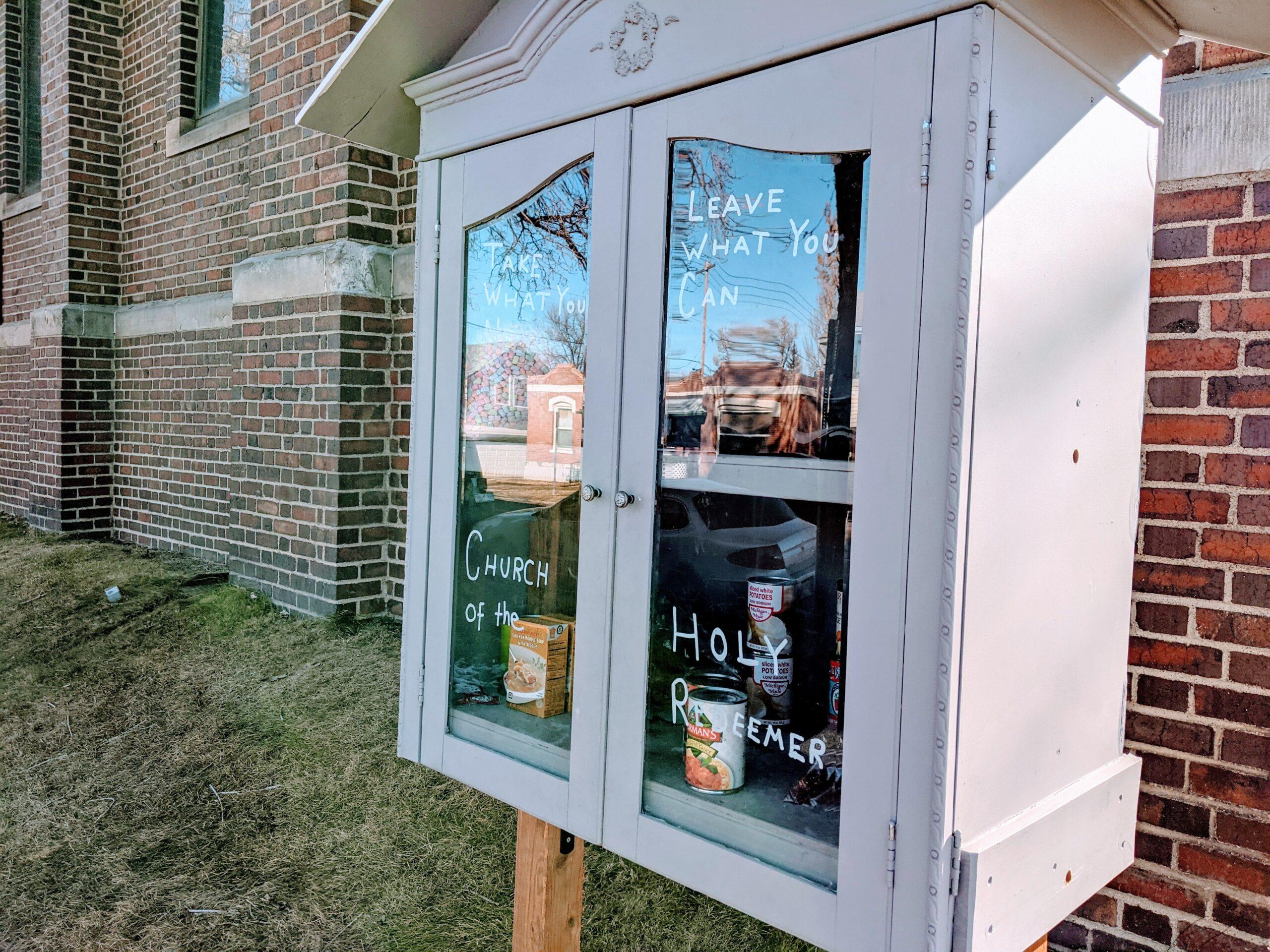
The idea, which pre-dates the pandemic, has been expanded in Denver and across the country because of COVID's impact on the economy. More traditional pantries - the kind you might find in a church basement - and food banks have seen a dramatic increase in people coming to collect food. The Denver Department of Public Health & Environment had estimated that before the pandemic, 11 percent of the city's population struggled to access food some or most of the time. By this past summer, the estimate had increased to 25 percent.
If Maggie Thompson were recreating her neighborhood pantry, which is not part of Zain's network, she might build a structure for it similar to the little free libraries she's seen in her neighborhood. Instead, her supply of food and other goods is in a lidded box that doubles as a bench on her tree lawn on Clayton Street between 36th and 37th avenues in the Clayton neighborhood.
The box that Thompson's husband built a few years ago to store tools for their raised garden beds had already been a handy place for neighbors to drop off excess vegetables for others to pick up. After the pandemic struck, turning it into a pantry was as simple as posting notice on the Clayton Facebook page asking neighbors to donate what they could, and inviting those who were struggling to take what they needed.
"It's been interesting to see it progress," said Thompson, a senior aide to District 7 City Councilmember Jolon Clark.
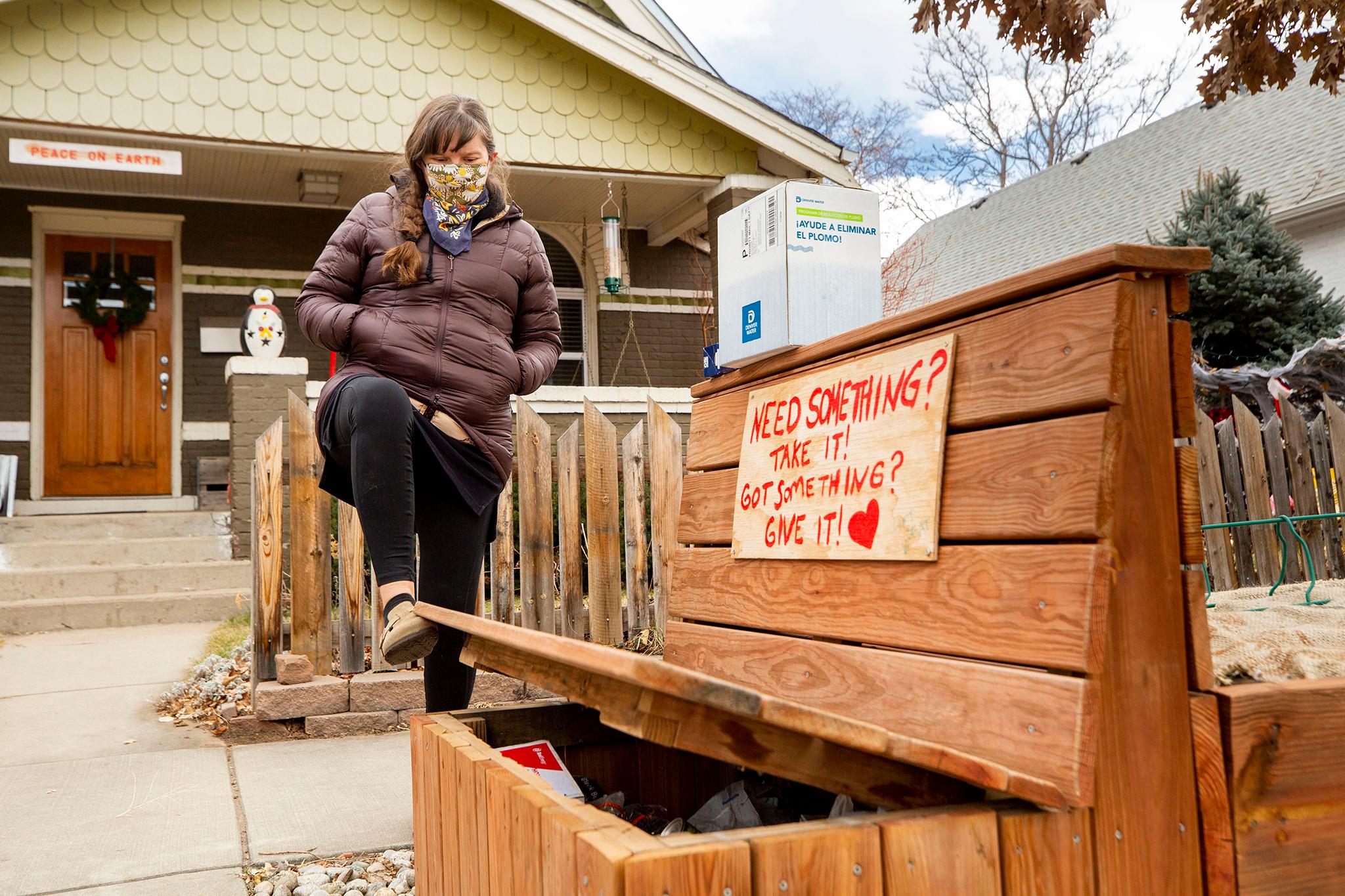
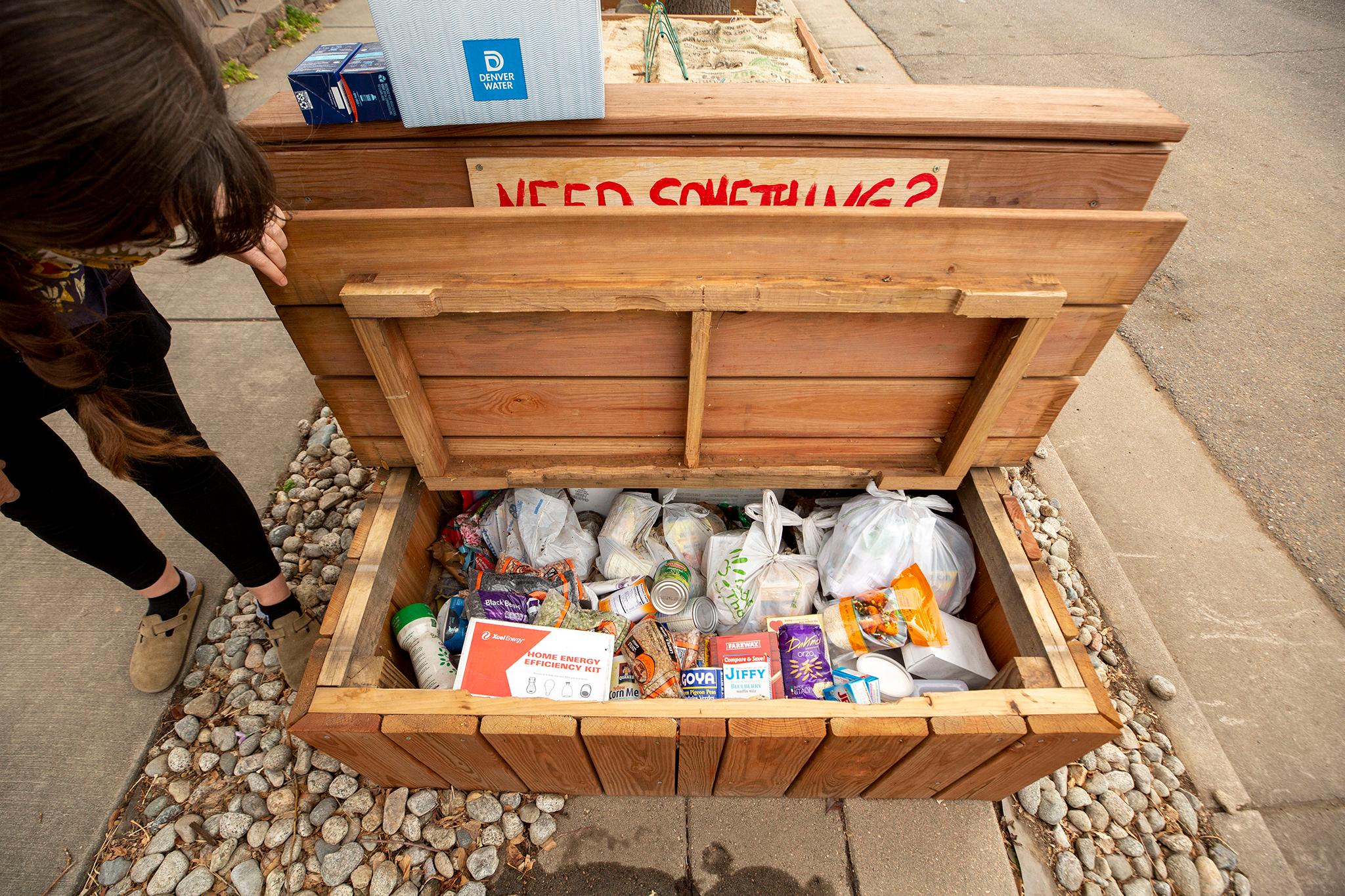
Early on, Thompson said, a woman down the block died of COVID. The woman's family made use of the pantry.
Supplies have never run low. Instead, Thompson said, the box once overflowed, and she removed items to store in her garage until she found room for them in the pantry.
Thompson's pantry held food on Tuesday that included bags of dried beans and cans of vegetables, as well as items such as lightbulbs.
While the rollout of vaccines gives reason for hope, Thompson said she expected her pantry will continue to be needed for some time because of the financial impact of COVID.
"We still don't know what this means long term for people," she said. "We're going to see a year, two years, three years of people just having to get back on their feet."
Zain, who is pursuing a degree in social sciences with an emphasis on social justice at CU Denver, said that in addition to helping people in need, pantries draw attention to issues such as food insecurity, homelessness and the gap between the haves and have nots.
"This is one way that we can start to close that a little bit," Zain said. They said broader governmental and social changes were needed to address the problem. In the meantime, people want to do what they can, and response to pantries "shows that if you give people the opportunity to take care of our community members, they will."
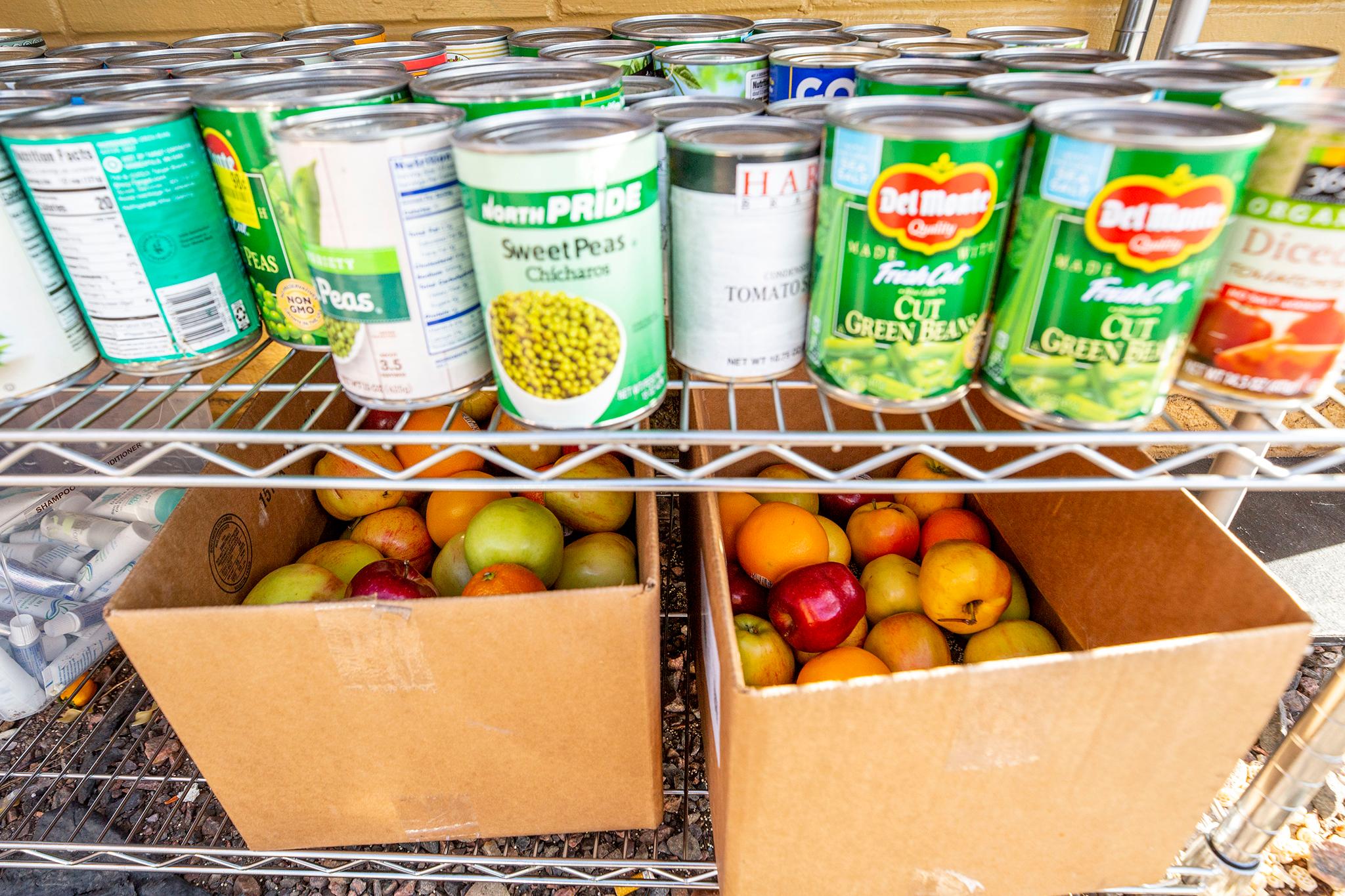
Zain said they were inspired by sidewalk pantries in New York and elsewhere. They began planning a community fridge project in Denver in July after their proposal was embraced by Jacob McWilliams, director of the CU Denver Women & Gender Center. It took months to secure materials and funding. The first fridge opened in early December at Mutiny Information Cafe on South Broadway. Two others are now open, the one at Base Coat and another at an Amethyst Coffee in Lakeside.
Zain sought out businesses to host the fridges and artists who were paid to paint each one. Supporting artists, who have been hard hit by the pandemic, was among the project's goals. The Base Coat fridge was painted by artists Sandi Calistro and Rachel Paton. The fridges are stocked by volunteers. Food is available from them around the clock, not just during the hours a traditional pantry would be open.
Tuesday morning, Base Coat nail salon owner Tran Wills opened the fridge to clean it and found supplies low. She put out what she called a "bat signal" on Instagram, the platform on which she'd first read about Zain's project. By early afternoon, the fridge was crammed with apples, containers of milk, heads of lettuce and other food.
Wills's salon was closed for two and a half months during the citywide shutdown. She worried she would never reopen and was grateful to be operating now at 25 percent capacity.
"I feel like it's my responsibility to do something for the community even during a rough time for business," she said of her decision to set up one of Zain's fridges. Wills turned to Hope Tank owner Erika Righter for a sign that explains the pantry's philosophy in English and Spanish: "Free food. This fridge belongs to you and so does what's inside. Take food, leave food. Be safe, be well!"
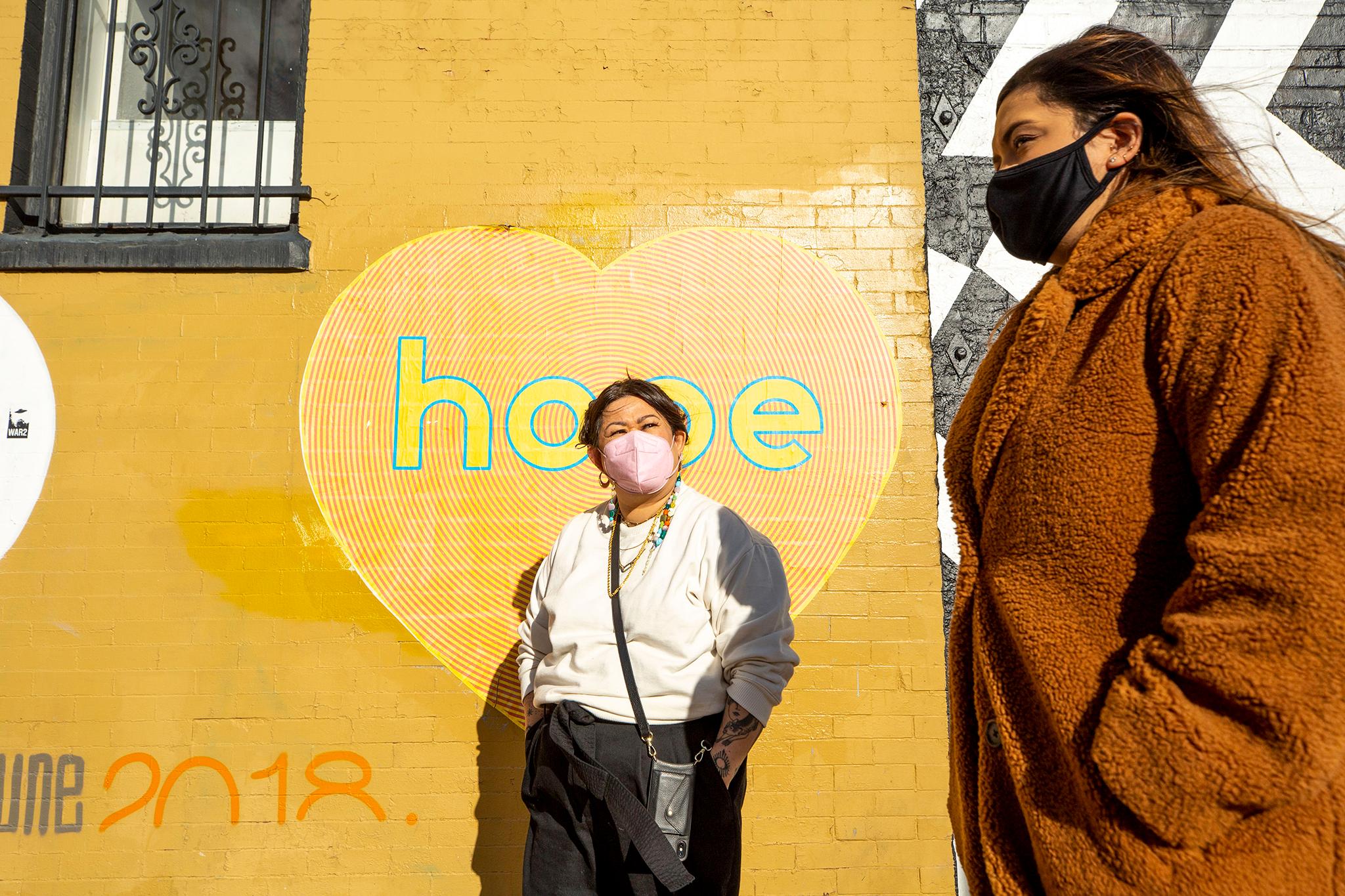
Wills said she experienced food insecurity when her family was young and knows sometimes a parent just needs to get through a few more days before the next paycheck. Other people who stop by the fridge are experiencing homelessness. Mariah Garcia, Wills's brand manager, said supplies of tooth brushes, tampons and other nonfood items were added to the pantry after consulting with people living on the streets nearby.
As he hunted through the toiletries at the Base Coat Nail Salon pantry, searching for supplies for a friend, John said he always shouted his thanks as he left. He gestured with his chin to the upper floor of the building that houses the salon, where Garcia has her office.
"I think they can hear me up top," John said.
Garcia uttered an emotional "oh," when she heard what John had said. She said other people have popped their heads in the salon door to say thank you.

